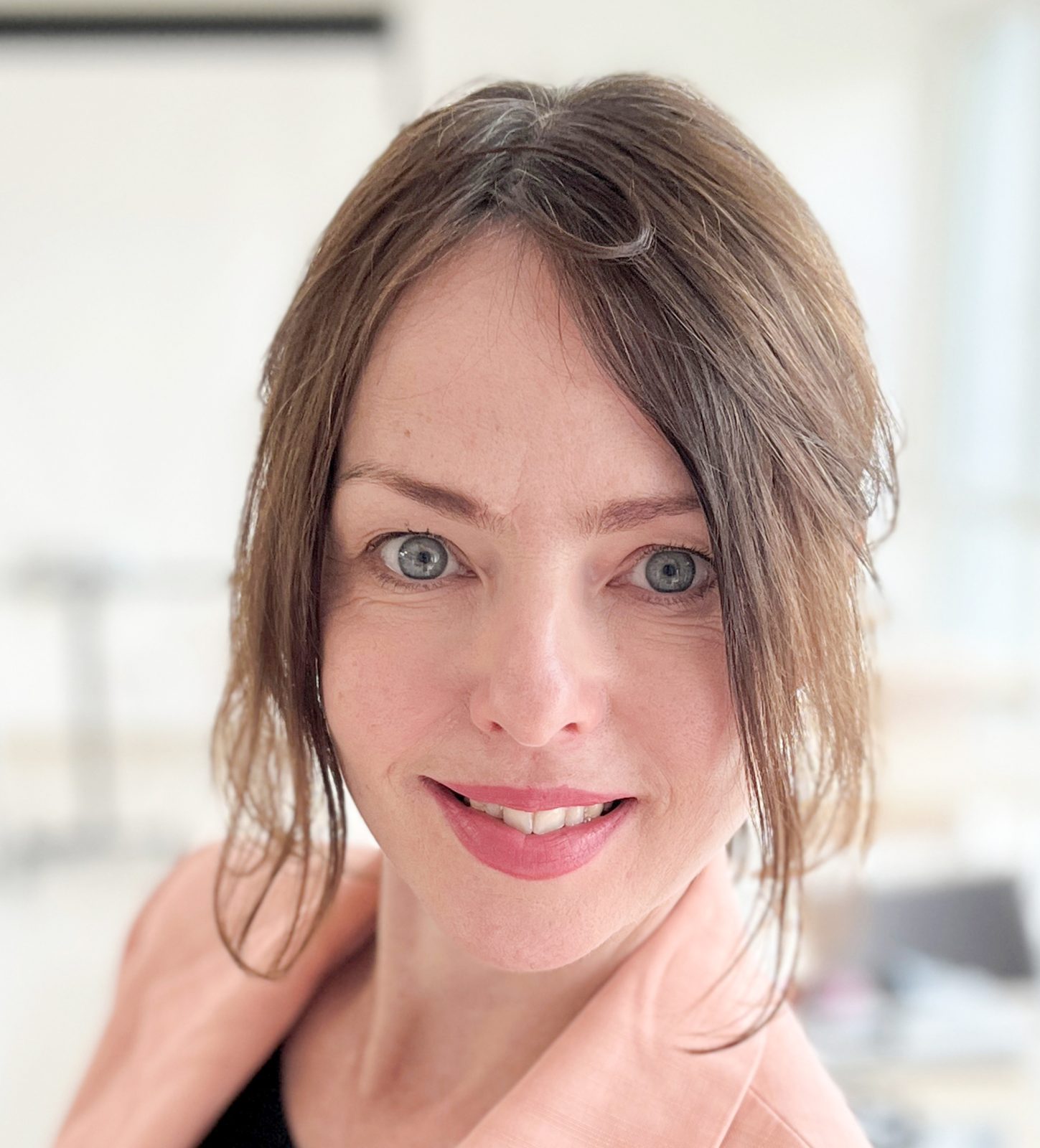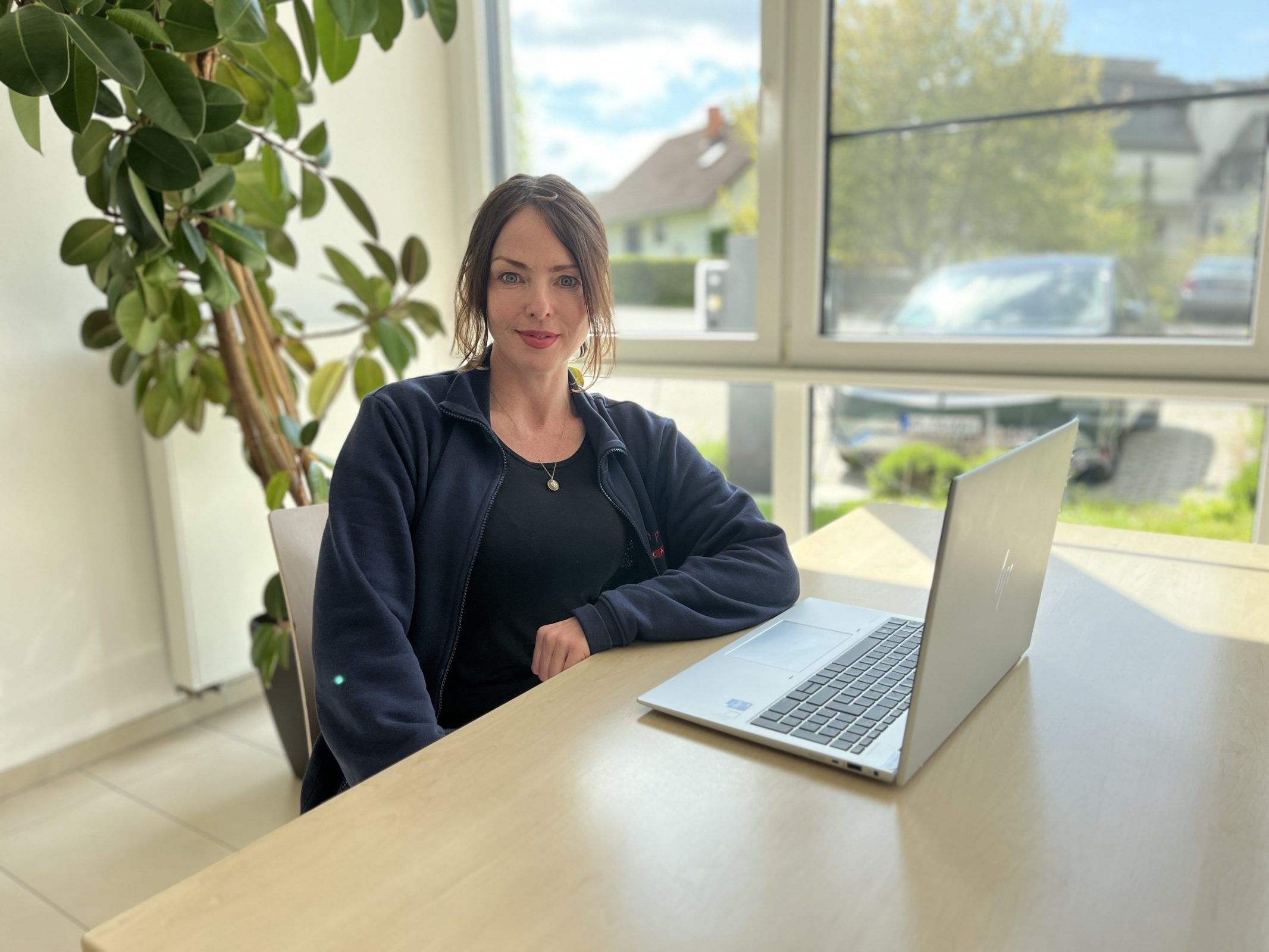Charlotte, to start with, please tell us a bit about your role and responsibilities.
As the Language Department Manager, I am responsible for organising, overseeing, and teaching the face-to-face and online CLIL-based English and communication courses. The courses develop PCB and Quipu employees’ language skills alongside enhancing practical skills, such as delivering presentations and discussing complex topics. One day can include designing materials, course planning, teaching lessons, participating in meetings with ProCredit Academy staff, and even going for forests walks with my students. Without doubt, there is never a dull day. My role puts me into contact with a wide range of colleagues from different departments and countries; this is something that I very much value. It also takes me to some fantastic places; before bringing the courses back to Fürth, I also organised and taught courses at our Eastern European academy in Veles, North Macedonia, and delivered local courses in Ecuador. In fact, as I write this blog, I am en route to Tbilisi to join the 25th birthday celebrations of PCB Georgia.
Why did you join ProCredit Academy?
Fostering intellectual inquiry and the pursuit of higher order thinking are two aspects of ProCredit Academy’s approach to teaching which is unparalleled. I consider myself very fortunate to work for an educational institute which encourages students and teachers to learn together, to develop together, and to find new and better ways of doing things. Despite having worked for ProCredit for over 10 years, I am still amazed at how this style of bidirectional learning inspires me beyond my teaching practice. I have lost count of the discussions I have had, the books I have read, and the places I have visited all because of ProCredit Academy and the highly motivated and talented students I teach.
Is there a person or event that inspired you and helped you grow in your career?
During my primary school years, I was fortunate to have a truly inspiring teacher; he brought lessons to life through his ability to suspend our disbelief and to bring us into a world of creativity and imagination. He had an innate ability to understand what we were curious about and to allow us to explore those curiosities. He gave us the freedom to make mistakes, but always with the implicit agreement that we must learn from them. He was strict but kind, funny but serious, spontaneous but organised. It was only when I reached adulthood that I fully understood the impact that this teacher had had on me. To reference this teacher in the past tense would be to undermine the prevailing impact he has on me. Simply put, he gave me my life motto: be brave, be creative, be authentic.
What were some of your biggest challenges in building your career and how did you overcome them?
Starting out as an English teacher, you go wherever the work is and that often means moving to another country for a job that covers your rent but little else. I found integrating tough because I had little money and often needed to work evenings and Saturdays – it certainly wreaked havoc with my social life. Generally, it is a steep learning curve and one that can leave you feeling exhausted. Having fortitude and belief in what you are doing and knowing why you are doing it helps you stay motivated. Taking joy in the simple things, and the brief but meaningful moments such as hearing a student perfect a sound they found difficult, or hearing a student confidently use newly learnt vocabulary, are all important reminders that your job as a teacher really can and really does make a difference.
As a professional English language teacher, how do you create a learning environment that fosters growth and development?
The classroom must always be a safe space where people know they can make mistakes without being judged. Fear of criticism and fear of rejection really inhibit people’s desire to engage in a task, and it undermines their true ability. It is easy to forget the power of praise, to assume that someone knows that they are doing well … but do they? Why not tell them? Make sure.
I always strive to help my students feel comfortable with hearing that they have done something well, and of course, equally comfortable with hearing that they have not done something well. I promote giving critical feedback in the spirit of empowering someone to do better, not to knock them down and to make them wither.
Talking of advice: What tips do you have for someone who wants to learn English?
Be brave! Know it’s OK to make mistakes. In fact, it is necessary to. No one, I repeat no one, has ever perfected a language without making thousands and thousands of mistakes. Take ownership of your language skills. Make notes of mistakes you consistently make. Ask yourself: Am I making consistent errors with certain areas of the language? Which situations cause me to make more mistakes? Conversely, keep a record of the things you do well. Ask yourself: What things am I already doing well? How did I successfully use English today, this week, this month? We often get stuck in the mindset that anything less than perfect is simply not good enough. I disagree – one of the most important statements I ever heard was from a former ProCredit Holding colleague. While working on a course together, he turned to me and said, “It’s not perfect but it’s good enough”. And in that moment, I freed myself from a long night of trying to perfect the imperfectible.






